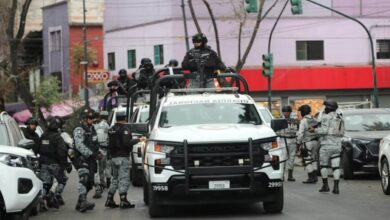Arica: a toxic dump and a sick community
Waste from the Swedish company Boliden has caused serious damage in the city of Arica in northern Chile

Photo: DW
”
LatinAmerican Post | Luis Ángel Hernández Liborio
The recent case of Repsol in Peru, that of Grupo México in the Sonora river and, possibly, the more mediatic, that of Boliden in Arica, Chile, are being debated. These scandals are examples of how multinational companies, generally from the “first world”, are responsible for many of the most serious ecological disasters of recent decades in developing regions such as Latin America.
Arica, a crime against nature and its inhabitants
The BBC has released the documentary “Arica: the toxic waste scandal that made a community sick”. Its creator, Lars Edman, grew up in Boliden, Sweden (after which the mining company is named) but was born in Chile, which made him the perfect link between the Arica disaster and Sweden. In this film work, the director denounces the dumping of toxic waste by the Swedish company Boliden in Arica, Chile, in 1984. This happened through the Chilean company Promel, which was contracted to treat the waste, but abandoned it in the open air.
You can also read: 4 Women In Science That Fight Against Climate Change
Almost 40 years later, the effects for Arica have been devastating. The heavy metals contained in the mud that was brought from Sweden have caused illnesses in the inhabitants of the region. Among the main ailments is cancer, the cause of death of numerous inhabitants who blame Boliden for it. The case escalated to a lawsuit against the Swedish company. However, thanks to his economic resources and influence, said lawsuit did not prosper, so the case went unpunished. Arica has highlighted the practice of multinational companies to pollute in Latin America, Asia and Africa taking advantage of corruption and loopholes in the law of these regions.
For Arica it has represented an economic and social decline, like other contaminated areas in the world, there are now uninhabited regions that were evacuated due to the danger they represent. This brings irregular settlements, delinquency and social decomposition in a place marked by environmental disaster.
“Developed” countries polluting outside their borders
The European Union has as one of the fundamental axes of its foreign policy the protection of the environment and support so that other regions of the world follow the same path. However, actions like those of Boliden continue to occur as a result of corruption and the lack of severe sanctions. The most recent example is that of the Spanish multinational Repsol, responsible for the oil spill off the coast of Peru. On January 15, an oil tanker caused the spill of almost 12,000 barrels of crude oil into the Peruvian sea while delivering the product to La Pampilla, a refinery managed by Repsol, according to El País. The UN estimates that the effects will last at least six years, so far there are no sanctions yet.
The main countries that defend the environment, such as the United States, the United Kingdom, Norway or the member countries of the European Union, are also the ones that produce the most waste per year, as detailed in Holes in the circular economy. report of the NGO Basel Action Network. According to their data, 352 thousand tons of toxic waste leave Europe for Asia and Africa, mainly electronic waste. The one that works is sold in these regions and the one that doesn’t is disassembled to obtain precious metals and functional parts.
The report provides data on the monitoring of electronic waste, which comes from “clean” collection points on European soil to later arrive illegally and with inappropriate handling in underdeveloped countries. This generates a discussion in Europe about the management of its waste that, almost four decades after the Boliden case, seems not to have changed much.
The human and environmental cost of being a landfill
For Chile, Peru and Mexico, to mention a few examples in the region, the result of being a landfill has been high. Pollution harms not only the environment, but also the inhabitants of these regions. Diseases, evacuation and the deterioration of the quality of life in Arica have created a dangerous area without opportunities for those who inhabit it. In Peru, the oil spill has reached two nature reserves, also affecting fishermen and the region’s economy, which is dependent on activities at sea.
Mining is positioned as the main source of pollution in Latin America, foreign and regional mining companies are the subject of complaints for environmental and health damage. In North America, Grupo México discharged, in 2014, 40 million liters of acidified copper sulfate solution into the Sonora and Bacanuchi rivers. The company, one of the richest and most powerful in the country, affected more than 22,000 people with this, who saw their water sources damaged for agriculture and human consumption and, like Boliden, has managed to deflect the accusations thanks to its economic power.




